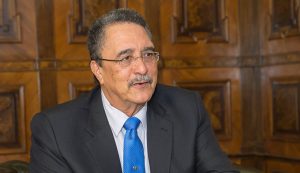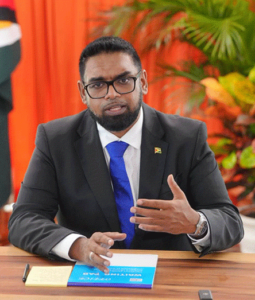The 46th regular summit of Caribbean Community (CARICOM) leaders commenced in Guyana last Sunday night, placing significant emphasis on addressing the political, economic, and social challenges facing Haiti. CARICOM leaders also expressed their determination to implement measures aimed at sustaining the success of the regional integration movement.

CARICOM Chairman and host President, Mohammed Irfaan Ali, delivered a comprehensive speech outlining the region’s commitment to ending hunger and malnutrition by 2030. The ambitious initiative seeks to reduce the high regional food import bill by 25% by 2025.
In light of the precarious security situation in Haiti, exacerbated by the assassination of President Jovenel Moise in July 2021 and the subsequent failure to conduct overdue elections, President Ali affirmed CARICOM’s unwavering support for Haiti. He commended the efforts of the CARICOM Eminent Persons Group, chaired by former St Lucian Prime Minister Dr. Kenny Anthony, in advancing the interests of the Haitian people.

The CARICOM chair underscored the region’s solidarity, stating, “We owe it to the people of Haiti.” He acknowledged the challenges faced by the region, noting that tough measures are sometimes necessary for the greater good of the people.
Outgoing CARICOM Chairman and Dominica’s Prime Minister Roosevelt Skerrit echoed the urgency of supporting Haiti, emphasizing that action is needed immediately. He stressed the importance of global cooperation in aiding Haiti, urging swift assistance.
The opening ceremony, lasting nearly three hours, featured various cultural performances from artists across the Caribbean. Ali used the occasion to call for a cultural revolution, discouraging lyrics that do not support the socio-economic and cultural development of the Caribbean. He recounted discussions with Trinidad and Tobago’s Prime Minister Dr. Keith Rowley, emphasizing the need to resist narratives that could tarnish the region’s cultural identity.

The Guyana president, responsible for agriculture within the quasi-CARICOM cabinet and the visionary behind the 25 by 2025 initiative, reported significant progress in reducing the regional food import bill. He shifted the focus towards eradicating hunger and malnutrition by 2030, highlighting that 57% of the population in the region, approximately 4.1 million people, are affected by food insecurity.
Expressing concern over the factors contributing to food insecurity, including imported inflation, rising fertilizer costs, and limited access to agro-chemicals, Ali emphasized CARICOM’s collaboration with global partners. Partnerships with countries such as Saudi Arabia and Canada aim to enhance the resilience of regional food production systems. These collaborations prioritize funding for food production ventures and encourage the involvement of women and youth in agriculture.
President Ali also called for the removal of intra-regional trade barriers to bolster regional food security efforts. By eliminating these barriers, the region could increase food production, promote intra-regional trade, and reduce dependence on costly food imports from outside the Caribbean.


